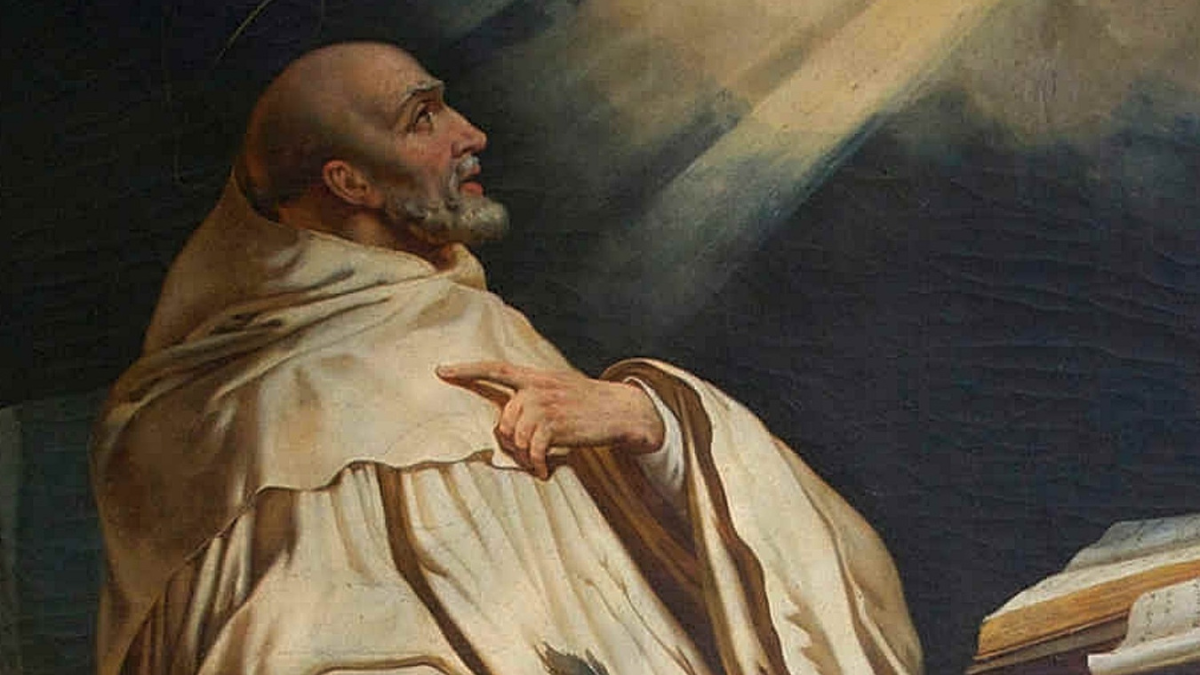The O Antiphons of Advent
Author: John Stonestreet and Dr. Glenn Sunshine

Authors: John Stonestreet | Dr. Glenn Sunshine
Many Christians are familiar with the beautiful and tender words of the medieval theologian Bernard of Clairvaux (1090-1153) in the hymns “O Sacred Head Now Wounded,” “Jesus the Very Thought of Thee,” and “Jesus, Thou Joy of Loving Hearts.” Like other Church Fathers, he also preached on the topics of Advent and Christmas and had rich words to share.
As well as a theologian, Bernard was a Church reformer, mystic, and abbot of the Cistercian monastery at Clairvaux. He played important roles in both ecclesiastical and secular politics, particularly as a preacher of the Second Crusade. Because of his eloquence and his emphasis on divine love, Dante made him his final guide of Paradise in his Divine Comedy. He was also cited by major Protestant Reformers such as Luther and Calvin as supporting justification by faith.
Although Bernard is known for holding a very high view of Mary, the overall focus of his Sermon 9 on the Nativity remains squarely on Jesus. It was built around a repeated refrain: “Jesus Christ, the Son of God, is born in Bethlehem of Judah.” In the first part of the sermon, Bernard emphasized the absolute wonder of this proclamation:
A voice of gladness has resounded in our land. In the dwellings of sinners a voice of joy and salvation has been heard. The good news has been announced, news of comfort, news of rejoicing, worthy of all acceptance. Rejoice and give praise, O you mountains. All you trees of the forest applaud before the face of the Lord, for now he is coming. Hear, you heavens; and you, earth, give ear. Let the whole of creation be astounded and give praise; but you, O humans, above all others. For “Jesus Christ, the Son of God, is born in Bethlehem of Judah.”
Bernard described this news as the sweetest, the most delightful, and the best to ever come to Earth. Words were inadequate, he said, to express the love that wells up in his heart at the beauty of the message. He then explained that every word in the sentence is full of meaning. The name “Jesus” points to Him as the source of salvation. The title “Christ” points to His anointing and the healing unction He provides. The title “Son of God” points to His greatness and the gifts He gives.
Bernard continued:
Take courage, you who are lost, for to seek and save that which was lost Jesus now comes. Return to health, you who are sick, for with the ointment of mercy Christ comes to heal the contrite of heart.
Rejoice all you who are ambitious for great things, for the Son of God descends on you to make you co-heirs of his own kingdom. … Why has the Son of God become Man but in order to make all men sons of God? Who, then, will resist his will? Jesus forgives us: who then will condemn us? Christ heals us: who will hurt us? The Son of God raises us up: who will put us down?
Jesus is born: let the person whose sinful conscience deserves eternal damnation rejoice, for Jesus’ pity exceeds all crimes, no matter how great their number or enormity. Christ is born: therefore, let the person who is tormented by deeply rooted vices rejoice. For no spiritual illness, no matter how chronic, can stand its ground before Christ’s healing ointment. The Son of God is born: let him whose habit is to desire great things rejoice, for the giver of great things is at hand.
Then Bernard explained “in Bethlehem of Judah.” Bethlehem means “house of bread,” and so we need to receive the food that comes from heaven in Scripture and in Christ, the Bread of Life. He noted that Jesus could have been born in a palace, but instead chose a small, poor village, because the only commodity absent in heaven and abundant on Earth is poverty. Citing Genesis 49, Bernard defined “Judah” as “confession,” concluding that we need to become like Bethlehem in Judah, receiving Jesus by faith and confessing Him with our mouth so that we may be saved.
Bernard’s sermon reminds us how easy it is to miss the astonishing wonder of all that the Incarnation means. So, to celebrate Christ’s birth, we must intentionally take the time to ponder the wonder of it, rejoice in it, and respond in faith to all that God has done for us.

Author: John Stonestreet and Dr. Glenn Sunshine
.jpg)
Author: John Stonestreet and Dr. Glenn Sunshine
 Read More
Read More